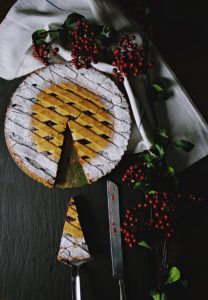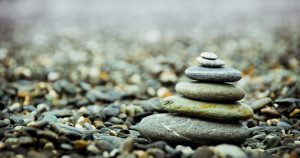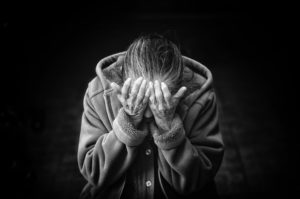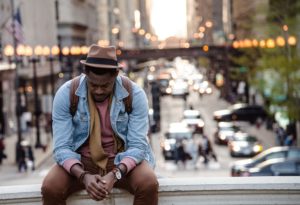by Jenny Rose | Jul 23, 2022 | Aging, Connection & Community, Emotional Intelligence
As I serial publish my Webbd Wheel series on Substack, I’m discovering some kindred spirits on the platform. Keri Mangis writes a newsletter called The Power Source, and she recently wrote a piece about being an outsider that caught my eye.

Photo by Joshua Rawson-Harris on Unsplash
I’ve written about the longing to belong previously. The desire to feel firmly anchored in family and community is an ache I’ve felt most of my life. Though I’ve belonged a few precious times in my life and I know what it feels like, I know more about what it doesn’t feel like.
Mangis suggests being an outsider is powerful because being an insider is so much work. We trim and prune and espalier ourselves to stay safe in our feeling of belonging. Humans are social animals. We’re neurobiologically wired to fear being outcast and alone.
Childhood is about learning roles, rules, familial and cultural norms, and, for most of us, under which specific conditions we can be loved and accepted and achieve belonging. Unconditional love is not our best thing.
By the time we’re young adults, we know what’s expected of us if we want to belong. The parts of us that don’t fit in are amputated or hidden, and we often live a double life, one secret and one playing to our audience, or we make ourselves into masks and shells, acceptable to our peers, families, and communities, but lacking authenticity or vitality.
Either choice is a lot of work. Making yourself small is exhausting. Ask any woman.
What we really want is for our real selves to belong, our honest, authentic selves, but few of us are lucky enough to find that easily, and the fear of being alone is huge.
We have a tendency to think of maturity as taking place in the first 20 years of life. By then we’re in our adult bodies and generally able to function on our own. We define ourselves as grownups, adults. We take on responsibilities, pursue education and interests, figure out the economics of independence. Some people form partner bonds and raise children. We’re busy in the world and much of that busyness has to do with belonging, taking care of social obligations, participating in production and consumption, and bumping up against limitations, rules, and taboos. We use our manners, follow traffic rules (sometimes), stand in lines, allow ourselves to be directed by signs, and generally follow the same standards of civility we learned in school.
We also subscribe to ideologies and resist change in the form of new information or critical thinking. We can’t endanger our places of belonging. Our identity depends on them.

Photo by Cristina Gottardi on Unsplash
In exchange, we are paid for our work, have friends, family, and community, wear our labels comfortably, and stay safe in the middle of the herd.
Then suddenly we’re old, negligible, invisible, and burdensome.
Then we die.
But what if the first 20 years are just the beginning? What if, as Mangis suggests, we embark on a new level of maturity in late middle age? What if that level requires we outgrow the need to belong and leave the longing for it behind?
I know from my study of power dynamics fear-driven choices indicate power loss. The fear of being outcast and alone is terrible, and so is the fact of it.
However, it is survivable, and it’s also a much, much easier way to live. The degree to which we’ve spent our first 50 years or so living underground or in the shadows is the degree to which our lives simplify if we decide belonging isn’t so important after all.
Suddenly, we can be as big, as expansive, as individual, as happy, as creative, as expressive, and as strong as we choose. We’ve spent 50 years learning about ourselves and the world. We’re no longer overwhelmed with the physiological needs of reproduction. If we give up our fears and struggles around belonging, what could we do with that energy? Belonging is expensive, and so is longing.
Perhaps mid-life crises are really just another growth spurt, a milestone to be celebrated and welcomed.
Instead of framing these years as the beginning of the end, perhaps we could look at them as the beginning of our most authentic years, the years in which we’re less concerned about how acceptable others find us, stop apologizing for who we are, and focus on reclaiming ourselves and belonging in our own skins.
At the end of the day, we belong only to ourselves. We’re not required to give up our power for transformation in order to belong to anyone else.
All we have to do is let go of our longing for belonging.

Photo by Mike Wilson on Unsplash
by Jenny Rose | Jul 2, 2022 | Boundaries, Emotional Intelligence

By John Rose
I’ve written in detail about boundaries before. I’ve spent a lot of time on the concept because boundaries were a key piece of healthy functioning I never understood or had before I was 50, and that lack caused constant problems and stress in my life.
This week I came across some questions about budgeting from Seth Godin that really caught my eye and started me thinking about boundaries again. Budgeting is much in my mind as we transition into our new house, new systems, and a new routine for everything from cleaning out the cat boxes to paying the bills.
A budget, in essence, is a boundary. I never thought of it that way before, but a budget is a framework we agree to stay within as we manage the resource of money. Boundaries are not specific to money, and three of the questions Godin proposed can be applied widely:
- Are you able to understand yourself and your needs well enough to put boundaries around them? If you don’t, are you aware enough to know what you need to learn so you can?
- Are you willing to be on the hook for managing your life so you don’t exceed your resource (time, energy, money, etc.)?
- Can you embrace the imperfect nature of life and plans as you lean into boundaries and flex when appropriate?
Godin comes at this as a businessman, but the idea of budgeting (effectively managing financial resource) can be expanded to include any resource.
It strikes me budgeting is adulting. It requires a clear picture of expenditure and income, the ability to think ahead, the humility to acknowledge what we don’t know and need to learn. Whether we’re trying to shape a more effective life or remodel a bathroom, the process is the same. What’s not working? What are the needs? What are our options for change? What will the project cost in terms of resource over a period of time? What do we need in terms of resource for learning what we don’t know? Are we investing our resource wisely? What’s the starting point?
(This circles back around to showing our work, the subject of last week’s post.)
If we can’t dig into these questions, we can’t become a professional adult.
Budgeting also requires responsibility. Are we willing to be on the hook? Are we willing to make written commitments to ourselves and others? Are we willing to build in consequences for failing to meet our commitments, both to ourselves and others?
Lastly, perfectionism is not resilient. Plans, budgets, and boundaries are frameworks. They support us in meeting our goals and functioning effectively and appropriately. While we’re making plans and drawing up spreadsheets, however, life happens. Pandemics happen. Economic changes come and go. New technology comes onto the market. We often need to flex, consider new information, accommodate change, deal with delay and unexpected events.
None of those inevitabilities are excuses for abdicating from creating boundaries. If we care enough to take charge of our own lives or dive into a project, clarity and boundaries are essential, including a budget. It’s not good enough to fly by the seat of our pants, to say contractors won’t work within a budget anyway, or budgeting ruins the fun, or we’re unwilling to compromise in order to maintain our boundaries.
If we won’t take responsibility for our endeavors, why should contractors or anyone else? If we can’t manage boundaries around our lives and resource, why should anyone else respect our needs? If we won’t do the up-front planning and work and communicate it clearly to those we’re engaged with, how can we expect to meet our goals?

Photo by rawpixel.com on Unsplash
Moving into a new house invariably results in needing skilled tradesmen like plumbers and electricians. Such people are not easy to find, especially in a small city. Obviously, one wants someone who is skilled, but I’ve also been reminded how important it is to find someone who runs an effective business. Liking and appreciating people who do work for us and being pleased with the work done doesn’t balance out lack of written bids, receipts, invoices, contracts, etc. I can’t budget if I don’t have good information. I can’t plan payments. Flying by the seat of one’s pants is not good business. It leaves both customer and service provider in the dark. Fortunately, I keep good notes and records, but there’s a big difference between a handwritten (by me) list of dates and amounts paid (Labor? Equipment? Was this the outside faucet or the leaking sink? How much more will I owe? When is the final total due?) and a professional invoice indicating costs for equipment, labor, the work that was done, and payment status.
Budgeting and boundaries. What an odd couple. Recognizing budgeting as a boundary makes me determined to embrace it, no matter how uncomfortable it is. I know all too well the result of having poor boundaries.
by Jenny Rose | Jun 26, 2022 | Connection & Community, Emotional Intelligence
This tidbit landed in my Inbox this week. At first read, I simply agreed with it. As I’ve thought about it, though, I keep unpacking layers.
I’m sitting outside in the sun at our new house writing the old-fashioned way with a pen and paper on my knee, which is crusted with dirt. The knee, I mean, not the pen and paper! It’s too bright for my laptop out here. Inside, our plumber and his assistant are deconstructing our upstairs bathroom. Fortunately, we still have a dumpster. We are pleased to have our plumbing issues addressed: slow drains, old water damage, leaking pipes, and an unpleasant whiff of sewer now and then. We will be even more pleased to have a working shower.

Photo by Angelina Litvin on Unsplash
And it all costs money. A lot of money.
With no work as a distraction on this day off, I spent the morning in the garden, where I was thoroughly happy and busy. That took care of the morning. I got dirty (knees) and bug bitten. We have no water at the moment, so I’m going to stay dirty until the plumbers leave for the day, although, come to think of it, I don’t know the water will be turned back on when they leave. Hmm.
Anyway.
Near noon I went inside for shade and a cold drink, but the sounds of banging, sawing, and the shop vac, along with a steady stream of construction debris and old bathroom fittings being carried down the stairs and out the door on the way to the dumpster fueled my anxiety, so I turned to the comfort of writing, as I so often do. I started by catching up on my email, where inspiration frequently lurks.
It was then I read Godin’s brief thoughts about fear and footnotes. He suggests when we feel nervous and afraid about the “information” we’re writing or speaking about, we don’t show our sources, references, and work.
It made me think about my own fear about scarcity today. If I showed my work about that, about the fear I’ll run out of money and have to spend the rest of my life under a bridge, what would it look like?
Have I ever lived under a bridge?
No.
Have I ever been in serious want?
No.
Have I ever been homeless or truly hungry?
No.
Do I have a job I love and for which I’m paid?
Yes.
In essence, I have no work to show because my fear of scarcity is nothing but an old ghost, an ancient traumatic wound, irrational and mostly in my head.

Photo by Mar Newhall on Unsplash
Interesting. Does lack of research and background information indicate a measure of fear in our discourse, a measure of uncertainty, a degree of irrationality, even?
Perhaps.
It’s a fact that I like my information (facts) served up with links, references, and footnotes. Content presented as information (facts) without such foundations is suspect in my eyes, and I do further research. Far too many people in cyberspace call their opinions, pathologies, disorders, fetishes, and lies facts.
On the other hand, some information (facts) is so widely accepted, taught, and promulgated footnotes are hardly necessary. An example of this is diet. Much of our (broken) healthcare system is built on the foundation of “facts” about what constitutes a healthy and appropriate diet.
But what if these “facts” arise from corrupted data? What if the real truth is less profitable for those in power and thus has been buried? For decades?
Collecting data and testing hypotheses requires funding. Doing it well requires a lot of funding. Corporations and other entities with deep pockets may have a vested interest in the outcome of studies. It’s not impossible to imagine unpalatable findings (by which I mean findings which threaten profit) are buried or deleted. It’s also not hard to imagine studies designed to explore data contradicting the (profitable) status quo can find neither funding nor support in the most powerful scientific schools and journals.
An unhealthy population is enormously profitable for some people, and those people have a lot of power.
This sort of thing has, after all, been going on since the time of Galileo, the sixteenth century astronomer who was interviewed by the Inquisition, forced to recant his scientific findings, and spent the end of his life under house arrest.
The thing is, he was a scientific genius, and he was right.
But the Catholic Church, very powerful during that period of history, felt threatened by his conclusions.
In other words, they were afraid. So they shut him up. Fear = silencing.
But that doesn’t change the fact that he was right.

Photo by Brenda Godinez on Unsplash
Tens of thousands of articles are available online about the health benefits of a plant-based diet. The better written, more thorough ones contain resources and links to various studies and data. However, one can also find studies and data by well-qualified scientists and doctors (mostly in other countries) indicating the reverse: a plant-based diet may cause a myriad of health problems.
Critical thinking, the ability to assess a problem or question, research, look at data, ask questions, and analyze findings, is an equal opportunity playing field unless we have no access to information (like the Internet) or are unable to read and write. What this means to me is we all have a right to question information, research for ourselves, and look for a variety of sources and references. Critical thinking in the modern age means we must be able to separate a fact from an opinion, information (facts) from lies.
That’s a big problem. I’m quite confident a plant-based diet caused me years of health problems and pain and the biochemical results (demonstrable data) my current carnivore diet provides to my doctor are not dangerous or problematic. My healthcare provider disagrees. Vehemently. I want to talk about my research, resources, and links. I want to ask questions. I want resources my provider might have access to which I haven’t found or don’t know about. I believe I have some solid data to back up my questions and concerns. I also know I am frequently wrong, and I’m as susceptible as anyone else to the glamour of bullshit wrapped up in science.
My healthcare provider refuses to discuss it.
So there we are. I’m not afraid to be wrong, but I am afraid to be in pain. My healthcare provider is part of a broken system. How much power does she have, really, to deal with someone like me? How much time does she have? How much energy or even interest? It’s much easier to fill out a one-size-fits-all prescription for a plant-based diet or pharmaceuticals. Her job may be in jeopardy if she doesn’t feed me with the medical establishment’s current party line.
Meanwhile, in the eyes of some others, I’m murdering the planet, taking poor care of my health, and clearly believe in hate and violence toward animals. Any self-respecting member of PETA would set my house on fire.

Photo by Lukas Budimaier on Unsplash
None of that is true, from my perspective. None of it is even fact. I could provide several links and resources challenging those statements, many of them by scientists and including studies and data. But many, many, people would believe all those things and more about me based on my dietary choices, and they too could provide links, resources, and numerous studies and scientific conclusions supporting their point of view.
I agree with Godin. We should show our work. It won’t make everything magically clear because information from different sources frequently conflicts, and not all information sources are trustworthy, but showing our work helps us remember science is built on the shoulders of those who came before us (like Galileo), and honors the scientific process. Heck, it honors creative process. Godin’s original post is three lines. I just wrote more than 1,000 words because he poked at me and made me think, explore, question, wonder.
We are all connected, whether we like it or not. Showing our work makes us a little more human, a little more humane, a little more thoughtful, a little more careful. People who won’t show their work set off my radar. What are they hiding? Why don’t they have the courage of their convictions? Why are questions and investigations so threatening they must be silenced or stopped?
As for the inside of my own head, I need to show my work to myself, too. Anxiety thrives on the stories we tell ourselves without regard to whether the stories are true or have ever been true. We all need to be clear about the difference between our stories and opinions and information (facts). Stories and opinions have their place, but they’re not facts we can research, footnote, and independently verify. If we can’t show our work, perhaps we’re no longer in the realm of facts. If we won’t show our work, we lose credibility with people who think critically.
Updating a bathroom costs some money. We have some money. Those are the facts.

Photo by Anastasia Zhenina on Unsplash
by Jenny Rose | Mar 5, 2022 | Connection & Community, Emotional Intelligence
Courtney Carver from Be More With Less dropped this little spring blossom in my Inbox recently. I’m not on Instagram but she passed this on from @sierranwells from @theshineapp.
Paraphrasing, giving our all leaves us empty. It’s unregulated and indicates questionable boundaries. A better choice is to give our best.
Don’t give your all. Give your best.
What an amazing distinction! When I say that to myself, I feel as though a mountain has been lifted from my shoulders.

Photo by Toa Heftiba on Unsplash
I don’t have to give everything and everyone my all. I can choose instead to give certain people, situations, and efforts my best. My best financial donation. My best support. My best effort. My best investment. My best love.
My all is reserved for me and my writing.
The filter between my all and my best immediately clarifies life and choices. It frees me to recognize when I’ve done enough. I’ve given my best. I can stop now. I don’t have to give and give and give until I have nothing left, not even enough to crawl away. I have the power. I make the choices. I decide where the boundaries are. I make an offering of my best, and if it’s not wanted or useful, I move on.
After all, if my best hasn’t been good enough, likely my all won’t be, either. I know that intellectually, but I’ve lived my whole life with the firm conviction that my best is inadequate and withholding. What’s required of me is to give my all, every last penny, every last bit of my time, energy, patience, and love. Everything. No boundaries. No reserves. No personal needs. Boundaries, reserves, and needs are selfish.
Wait, says a little voice inside me. Doesn’t unconditional love mean giving it all continuously, no matter what?
Does it? Is that what unconditional love means?
Unconditional love means love without strings attached.
I don’t know if human love is limitless. I don’t know if mine is. I’ve loved several people with everything in me before, but today I don’t feel as though any of those loved ones found my love useful or even noticed it for what it was. Perhaps it was lost in translation.
Perhaps they never wanted it or needed it in the first place.
I still love some of those people, because they are woven into my flesh and bone, but we are not actively connected and for the most part my love is mute and suffering. I have not found an acceptable way to give it, which is to say I have not found a way to feel it’s recognized, valuable, received or even welcome. It’s unconditional, but it’s unwanted.
Yet I do know one person who longs for my best and my all – all my unconditional love, all my compassion and empathy, all my strength and wisdom, all my creativity and courage.

Photo by freestocks.org on Unsplash
Me.
As I approach my 60s, I spend less and less time thinking about how to give my all and waiting for scraps and crumbs to come back to me. Now I’m focused on how to connect with and unconditionally love myself. Because I deserve it. And it’s my turn. And I want me. I need me.
The people (and cats) in my life get my best. Sometimes that seems regrettably inadequate, but I’m intentional about giving my best to those I interact with, work with, and live with. I give my best to what I do in life, from cleaning the bathroom to teaching a child to swim. My best love, care, and effort are no mean contributions to my loved ones and my community.
But I don’t owe my all to anyone. Not at this point in my life. I’ve never yet given my all without subsequent emotional bankruptcy it took me years to recover from. I’ve never yet felt my all was reciprocated. Perhaps that’s as it should be.
I thought I had to give my all. I thought that’s what love was. I thought one proves love, commitment, loyalty, what have you, with an investment of one’s all. I thought that investment was guaranteed to provide rich returns.
So far, I’ve failed to reap rewards from that strategy. I’m rethinking my investment plan. Might it be that giving my all to me increases the quality of my best to others? Could it be that giving my best to others will prove a better investment than giving my all? Is this a case of working smarter, not harder?
Maybe our all is only useful when we give it to ourselves. Maybe it doesn’t work elsewhere because it’s not supposed to. Maybe our best is better for the people around us.
In any case, I feel lighter, freer, and healthier, both in myself and in my relationships, when I endeavor to do my best within healthy boundaries and reserve my all for myself and my writing.

by Jenny Rose | Feb 19, 2022 | Connection & Community, Emotional Intelligence, Shadows
Now that I publish my fiction on Substack, I read regular content from the platform, and a few weeks ago the platform runners wrote an essay about censorship titled “Society has a trust problem. More censorship will only make it worse.”
I’ve read and reread that essay.
I’ve been trained as a librarian, and one of the most important tenets of professional librarians is freedom of information. One of the things that drove me out of my job as an elementary school librarian in a public school system was pressure to take Harry Potter off the shelves. I told the school board I wouldn’t do it. If they had to fire me, so be it, but I wouldn’t take the books off the shelves. I asked if any school board member had actually read one of the books in question. None had. Surprise, surprise.

Photo by John Salvino on Unsplash
Freedom of speech and freedom in general have been hot topics since the 2016 presidential election and COVID. I’ve written before about freedom of speech, which is not all-inclusive.
In the last six years, cultural censorship has increased enormously, but it’s failed to silence anti-vaxxers, proponents of the election Big Lie, COVID naysayers, and people who believe men cannot become women, or vice versa. It’s also failed to address increasing civil violence, disconnection, and unrest.
Does censorship work? Is it a useful tool?
It doesn’t appear so. I’m irresistibly reminded of the “Just Say No” drug campaign for school kids and sexual abstinence programs for teens. Do they work?
Not so much.
It seems to be a human character trait that the minute we’re forbidden to do something we move heaven and earth to do it. Look at Adam and Eve. Look at Pandora. Dozens of old oral stories from around the world are about people who broke their promise not to look and suffered the consequences.
I’ve never thought to ask myself what problem we’re trying to address with censorship.
Is it cultural trust?
Possibly. Trust is an easily manipulated quality, because it’s a belief. Belief, as we’ve seen demonstrated over and over during the last years, is more powerful than facts. People will die for their beliefs. They’ll kill for them.
Are beliefs strengthened or weakened by access to all kinds of information (facts) or opinions? Are beliefs strengthened or weakened by censorship?

Photo by Cristian Newman on Unsplash
I’m not sure trust is the root problem, though, or not the entire root. Perhaps the deepest root is education and, paradoxically, freedom. Authoritarianism is characterized by blind submission to authority. One of the tools of authoritarianism is censorship, including limiting the rights to vote, read, write, report the facts, speak, and teach.
Censorship implies people can’t be trusted with a full range of information. They are unable to make the “right” choices, according to the authoritarian(s) at the top. Thus, the public is spoon-fed only that which supports the authoritarian power. Asking questions is not allowed. Challenge is not allowed. Discussion and debate are not allowed.
Don’t you worry your little head about substance abuse. Just say no. We don’t talk about sex and our bodies in this house. It’s dirty and shameful. Just abstain from inhabiting your healthy young body.
The subject of censorship is tricky, because I suspect we’d all like to have the power to censor certain voices on social media, on radio, on television, in the bookstores, on YouTube, and on platforms like Substack. Some of the propaganda and opinions out there, the lies masquerading as facts, are horrifying. However, my lie might be your fact. Your heart-felt ideology about eating meat may be in direct conflict with what I need to sustain my health and quality of life. Should one of us have the power to censor the other?
This is where the trust problem comes in. We don’t trust one another to make the “right” choices or believe the “right” people. I think many don’t trust themselves to make the “right” choices. They rely on someone they have faith in to tell them what to do.
The “right” choices imply the possibility of “wrong” choices, but this is black-and-white, overly simplistic thinking. Perhaps you need to be a vegetarian in order to sustain your health. Perhaps I need to be a carnivore. We’re both right. Does that mean a full range of diet and nutrition information should be available to all? Can we, as a culture, agree to live and let live?
I have my doubts.
The current specific issue on Substack is the subject of COVID. Evidently, there are writers on the platform spreading dis- and/or misinformation about COVID. Scientists on Substack sending meticulously researched, linked, and data-driven information take issue with that and want Substack to censor such writers for the sake of the public good.
Substack, in response, wrote the above essay, maintaining their position against censorship and explaining their thoughts about it.
I’m in sympathy with both sides. I, too, am frustrated with the sheer volume of unmitigated bullshit out there. But I never forget many people would say my sources of information are bullshit, and I would fight hard to maintain access to those sources.
Maybe the problem is not how deep the bullshit is, but how bad we are at recognizing it. And that’s a product of our broken education system and our inability to think critically. Both these cultural trends make us increasingly vulnerable to authoritarianism.
As I’ve discussed before, choice goes hand-in-hand with responsibility. If we want optimum freedom to choose, we must accept the consequences of our choices.
Taking responsibility for our choices is not humanity’s greatest strength at this moment in history.
If I was Supreme Ruler of the World (God forbid), I believe I would vote with Substack on this issue of censorship. Silencing people does not address the root of the problem, only a symptom. We need to figure out a way to fix our educational system so we all learn critical thinking at every stage of education. Not only does this empower people to make their own choices and recognize the difference between lies and truth, opinions and information, it allows public access to a full range of viewpoints.
We are never going to silence the liars and manipulators. They will continue to try to obtain power and money, and they will continue to aggressively work to silence those who disagree with them. The best weapon against them is to firmly empower ourselves and others with education and the ability to think critically. We don’t need to be protected. We need to be armed.

Photo by Nicole Mason on Unsplash
by Jenny Rose | Jan 29, 2022 | Connection & Community, Emotional Intelligence
I noticed a social pattern last week I’ve never seen clearly before.
I was involved in a situation at the pool facility where I work in which a distressed person (person #1) needed support. The situation did not arise in a private place, and there were onlookers. It continued for about 30 minutes, which is a long time when someone is visibly and audibly struggling with pain and grief.

Photo by Cristian Newman on Unsplash
The situation resolved, of course. We cannot fix the challenges and difficulties others face, but we can be with them while they feel their feelings and lend our strength, compassion, and energy until they can move forward. My team and I provided the needed support.
A few minutes later, a witness to the interaction (person #2) attempted to monopolize my attention and monologed about their pain, medical history, and personal difficulties.
I had completely different reactions to these two circumstances.
I have never known the first person to engage in attention-seeking behavior. On the contrary, in spite of significant disability person #1 is generally upbeat and determined, working very hard to gain strength and independence and supporting those around them who also face physical limitations and challenges. When things fell apart it was an anomaly, my empathy arose immediately, and I stepped in without hesitation or thought. I entered into their experience as fully as I could with nothing held back, completely focused on support.
In the second case, person #2 was no better or worse than usual, and is much more able than person #1 at baseline. While other witnesses had expressed compassion for person #1 (“that could be any one of us”), person #2 did not, but launched into a harrowing personal account that felt both competitive and demanding. I was wet (I’d gone into the pool in my clothes), cold, and emotionally worn out, as well as sad about the difficult experiences some people go through. I felt I was expected to supply more emotional energy, not as a temporary support on a bad day, but as a continuing source.
I silently declined, putting my empathy behind a boundary to rest and recover, and employed my usual level of compassionate listening. After a few minutes, I politely excused myself and moved away.
We’re all familiar with the adage about the squeaky wheel getting the grease. These interactions made me consider the failing wheels that do not squeak. Years ago, when I did fire and rescue work, I learned the loudest victim of an accident is probably not the most seriously injured. The person in hysterics clearly has an airway and a pulse. It’s the quiet victims one needs to assess first. This is true of drowning victims, as well. If a drowning victim is yelling for help, they’re in less immediate danger than the one sliding silently below the surface.

Photo by whoislimos on Unsplash
I’m one of the quiet ones. Stoic, mistrustful, often blaming myself for my own distress, I conceal it as best I can for as long as I can. I’m much better about asking for what I need than I used to be, thanks to my extraordinary group of friends, but I can relate to the one who is in deep emotional trouble and needing the most support and never asking for it. Pain and grief build up in the silence of our own heads and hearts. Our wordless anguish swells until it finds some kind of an outlet, and that outlet can be messy and humiliating.
I vividly remember being a school kid in a classroom. I was frequently bored. Some teachers allowed me to read or gave me extra credit or advanced assignments when I’d finished the assigned work, but some did not. I watched the clock while students who struggled with reading read aloud. I gritted my teeth. I daydreamed. I did my homework. I refrained from raising my hand, even though I generally knew the correct answer. I ignored the whispers about being a “goody-two-shoes” and a “teacher’s pet.” I continually defended against my neighbors trying to copy my work. I watched in resignation as the “squeaky wheels” acted out, floundered academically, and otherwise consumed all the teachers’ energy and attention. If allowed, I read a book. If not allowed, I read ahead in my textbooks. Anything to make the time go by. Of course, if I read ahead I only invited more boredom in the weeks ahead. My teachers said I was a “good kid,” I was a “pleasure to have in the classroom.”
I was not and am not a squeaky wheel. I was invisible. I could have learned so much more. I wanted to learn so much more. But there was no leftover grease. The squeakers and squealers got it all. Every day.
I know people who are comfortably well-off financially (comparatively) and are always talking about money, trying to make more money, dreaming what they would do with lots of money, blatantly pinching pennies to save money, gloating over the money they have, using their money to manipulate others. I know other people who are quite financially distressed and never complain. All their energy goes into working to earn more and doing without to spend less, but they don’t talk about it. If I didn’t know, I’d never know.

Photo by Cristian Newman on Unsplash
It’s an interesting social paradox that those among us who are most in need are sometimes the quietest about it, while attention seekers fight to remain center stage under the brightest spotlight. Yet the attention seekers frequently are the least able to utilize support and validation in such a way as to build self-reliance and independence. They crave the attention, but it doesn’t satisfy. They can’t use it effectively. It only feeds their hunger.
Others can transform with a little bit of care and attention. They use every kindness and expression of support to move forward and grow. They don’t want to be dependent on external attention.
We all need support sometimes. Any wheel can develop a squeak. Some people want support all the time and some wheels squeak continually no matter how much grease they get. As we make choices about investing our time and energy in our relationships, it’s important to know the difference.
















